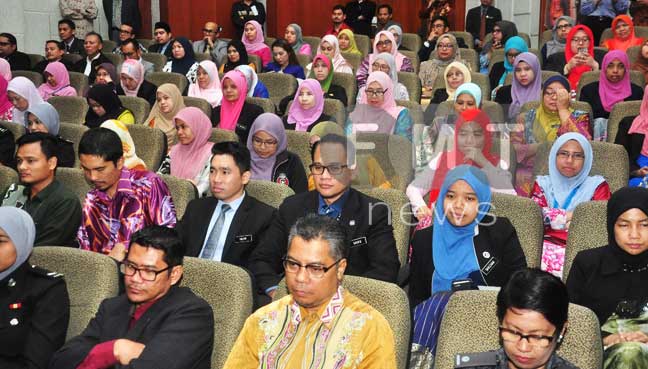Is there hope for the civil service?

We need to get rid of the culture of censuring those in the civil service who speak up when they see wrong being done.
Dr Amar-Singh HSS, Free Malaysia Today
I found the courage to write this after the recent strong words from Prime Minister Dr Mahathir Mohamad to the civil service. He encouraged those in the civil service not to blindly follow instructions, and to speak up if there are wrongdoings, saying he will support those who have been “tortured”.
There has been a long-standing culture of victimisation in the civil service. Many of us join the civil service to serve the public. Some of us have better financial prospects elsewhere but choose the civil service because it offers us an unparalleled opportunity to serve the people of our nation.
Unfortunately, as Mahathir points out, the civil service is now populated with those who are self-serving, to put it mildly. Over the years, I have seen people take advantage of their position to enrich themselves or abuse their power, so much so that the prevalent culture becomes “keep your head down and follow instructions”, even if things are wrong.
Those of us who attempt to speak up when we see wrong, or make the necessary corrections in the system, are often censured, at times with measures detrimental to our career. We are constantly reminded that we belong to “the government service”.
Allow me to share an example from my own life. I recently retired after being in the civil service for more than 35 years. In April last year, I received a show-cause letter saying I had brought shame or detriment (memalukan dan memburukkan) to my ministry and the civil service. I was also informed verbally that action was being considered at the highest echelons of the organisation to sack me without pension.
You may ask what I did to bring such wrath upon myself. What prompted this response was a tweet I had made, stating that we are “civil servants, not government servants”. I went on to say that it is “the taxes of the people that pay our wages”.
You may say that what I tweeted was factual and “mild”, but remember that this was in April 2017, before the election, when fear was prevalent and many were being censured. My tweet was forwarded by “cybertroopers” to the highest level of the organisation, and I was issued a show-cause letter.
It was a traumatic learning experience for me. I found that despite many years of work and bringing change/pride to health services (I received a number of international awards), no one was prepared to openly stand up for me. I tried meeting the senior civil service management, but was unsuccessful.
In the end, the previous health minister Dr S Subramaniam was kind enough to act on my behalf when I approached him. Even then, I still received a warning letter saying I had been found to have brought shame/detriment to the organisation, and was warned about future action.
Why do I bring this up? If the civil service is to have any hope, we need to get rid of the petty victimisation of staff and offer safe opportunities for them to speak up when they see wrong being done. The Regulations for Public Officers (Conduct and Discipline) [Peraturan-Peraturan Pegawai Awam (Kelakuan dan Tatatertib) 1993] have an overreaching “Peraturan 19 (1)” about civil servants speaking up. It was put in place to protect government policy, but is also used to silence those who speak up. It can be and is used arbitrarily, as was the case with me.
I hope the institutional reforms committee can look at this section and consider with the government an amendment to focus on government policy, not on personal statements. If there is no safe platform to express the wrongs that are conducted in the civil service, a mechanism outside the system, then many will not dare to support the necessary change for reform in our civil service. Even now as I speak up about the way I was treated (and it is frightening when you go through it), I have some fear that action can be taken against me after retirement.
If you wonder why sometimes there is low morale in the civil service, remember how I was treated for making a simple, true statement. Remember the lack of support within the system for staff who speak up.
It is time to bring back a civil service that we can be proud of. This requires a radical change in how we appoint leaders in the service and how much we encourage constructive dissent (voiced disagreement and discussion on policies and decisions). There is a lot of dead wood and many self-serving individuals that need to be removed, but there are still many who want to serve our beloved nation.
I hope the civil service can be found committed to ensuring the best services for our public and nation and not that of individuals.
Dr Amar-Singh HSS is a senior consultant paediatrician.

